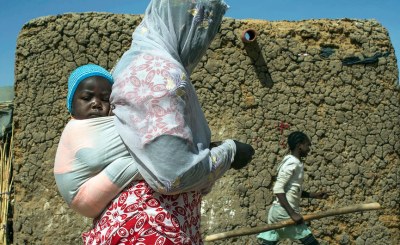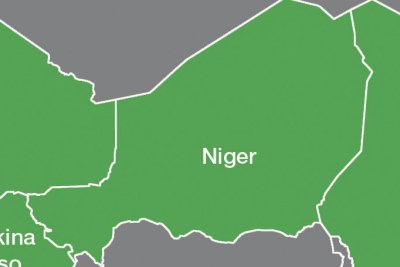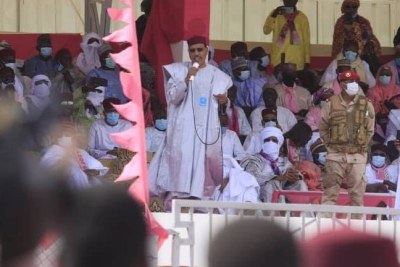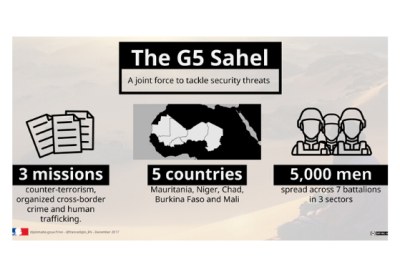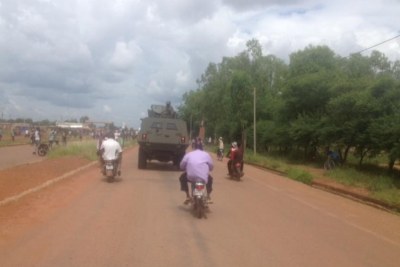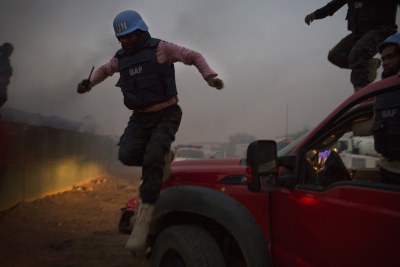-
West Africa: Many Strategies but Little Progress in Securing the Sahel
ISS, 26 January 2021
Since it started nine years ago, the Sahel security crisis has claimed tens of thousands of lives, forcibly displaced millions, and triggered record levels of food shortages. Last… Read more »
-
West Africa: Sahel and Mali - Still More Crises to Come
Centre 4s, 9 December 2020
In the Sahel, with Covid 19, 2020 will be a pivotal year in the fight against armed groups, some of which are supported from outside. Moreover, a year of Partnerships and quest for… Read more »
-
West Africa: Only International Action Can Restore Security in Sahel and Lake Chad Basin - Niger President
Africa Renewal, 21 November 2020
In a pre-recorded address on Thursday to the UN General Assembly, Mahamadou Issoufou, the President of Niger, stressed that only international action can restore security in the… Read more »
Many Strategies but Little Progress Securing the Sahel
Since it started nine years ago, the Sahel security crisis has claimed tens of thousands of lives, forcibly displaced millions, and triggered record levels of food shortages. In 2020 alone it claimed nearly 6,500 lives in Burkina Faso, Mali and Niger. Widespread violence and insecurity have sparked a severe humanitarian crisis, with an estimated 13,4 million people needing immediate assistance by October 2020 - 20% of the region's population. The situation is particularly alarming in the Liptako-Gourma region, where Mali, Niger and Burkina share porous borders. Attacks by violent extremist and other armed groups, combine with illicit activities, local conflicts and communal violence, to further weaken a region that's long suffered from governance deficiencies. Governments need to prioritise the fight against impunity as a core component of a stronger commitment to protect civilians and uphold the rule of law. Most importantly, protecting civilians must become a strategic priority underpinning the action of all national and international defence and security forces on the ground. 2021 will be a year of power transfers and political transitions in the Sahel, writes Nadia Adam, Research Officer and Ornella Moderan, Head, Sahel Programme, Institute for Security Studies, Bamako.
InFocus
-
The nation has declared three days of mourning after more than 100 civilians were killed in a suspected terror attack near the border with Mali. It was the latest in a string of ... Read more »
-
Polls opened Sunday in Niger's presidential election that is expected to see the country's first democratic power transfer since independence from France. Former Interior Minister ... Read more »
-
Central Mali is now the deadliest region in the country for civilians, as violence has intensified considerably over the past three years. The population finds itself trapped ... Read more »
-
Security forces in Mali, Niger, and Burkina Faso have been accused of committing a rising number of extrajudicial killings in their battle against jihadist groups in the Sahelian ... Read more »
-
U.S. officials have warned that the security situation in the Sahel region is rapidly deteriorating. They said attacks claimed by Islamic militants against civilians and military ... Read more »
-
Attacks carried out by militants against military personnel in central Mali could hamper government efforts to start a dialogue process, experts have said. Mali has been struggling ... Read more »
